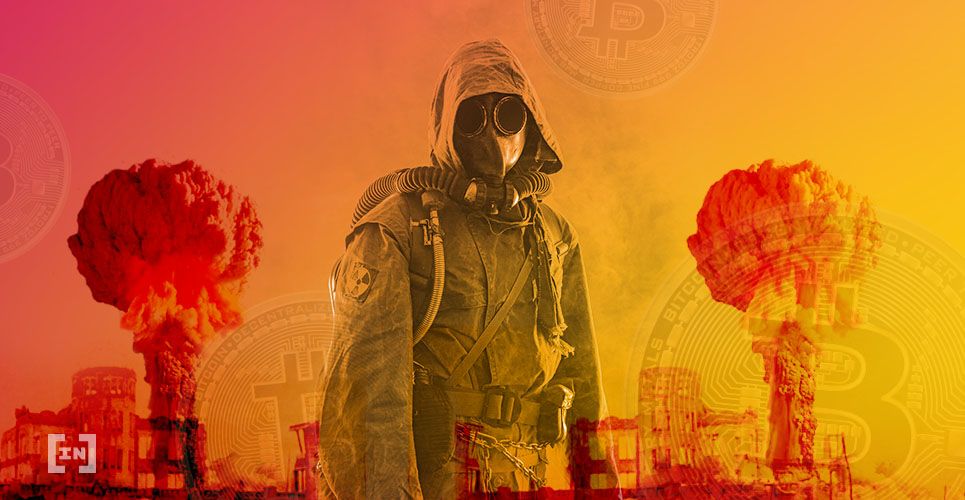In an almost outrageous move, the publishing platform Medium has decided to delete an article posted by one of its writers. The censored piece was — if it wasn’t ironic enough — about Bitcoin, the currency enabling the decentralization of power.
This is a clear case of censorship from a platform that has built its reputation on the backs of its contributors.
Huh, @Medium is now in the censorship business. Suspended an account for posting a guide to using Bitcoin anonymously.
— Ty 🐄-Uh-Moto (@TiKawamoto) January 3, 2019
A blog is literally the easiest content type to find/build alternatives for, what the fuck are you guys doing??https://t.co/eXgvvWzoJD
The Censorship-Resistance Feature
One of Bitcoin’s features is censorship-resistance applied to personal wealth. As long as the Bitcoin network is active, anyone can do as they please with their Bitcoin possessions — transfer it, destroy it, safeguard it, or distribute it. There is no intermediary to appeal to and there is no gatekeeper that restricts access to the network. The 10-year old digital currency has spurred a whole movement around decentralization of power, which would eliminate censorship in domains like media. Medium was created by the Twitter co-founder Evan Williams and the platform’s mission is to enable contributors to share ideas with the whole world. The platform has become a hotbed for blogs of startups and corporations alike and a platform where talented writers, researchers, and experts can share their ideas. However, with a growing influence in the world of media, more cases of content policing from Medium are popping up — which highlight the risk a centralized platform can pose to free speech. This case of censorship is not the first one to happen on Medium. Aragon and Status are two cryptocurrency projects have previously voiced concerns over content limitations imposed by the platform. Aragon has since then left Medium and publishes its blog on another platform. While restrictions on clearly offensive content may be reasonably set in place, some of the policies employed by Medium seem counter-intuitive to its mission statement.
About Censorship
Censorship has always been met with criticism from society. Even nowadays when it seems that information is available everywhere at the speed of a click, there are countless cases of censorship. Censorship is a very dangerous form of control. For example, the State might implement censoring practices under the pretense of goodwill — e.g. shielding everyone from bad actors. However, the underlying motive is to keep the public ignorant of information that can potentially disrupt its authority. These censoring instruments are then used to silence critics of the government or entities that might become a threat to their power. The censorship rules lie in the eye of the beholder. That’s why censorship by any centralized entity is a powerful tool for control and extremely harmful to the progress of society as a whole. Oftentimes, censorship comes in the form of media suppression in under-developed countries, where a handful of people want to maintain control of power. However, recent events have shown that even in developed countries there is a threat of censorship, albeit in a slightly different way.
Centralized Solutions Prone to Censorship
Companies enabled by technology to disrupt entire industries have grown big enough to start acting as an intermediary between its users and, most often, the government. Facebook, Slack, and Twitter all have had cases where they have taken upon the role of arbitrator to restrict access to their platforms. The question remains whether the article ban was a deliberate action or an algorithm-based decision. Is Medium following in the footsteps of other platforms that with great power have taken on more responsibility to actively manage information flow? Either way, these cases of censorship and intervention showcase the single point of failure weakness of centralized entities. Luckily the solution to eliminate the single point of failure and the risks associated with censorship lies within decentralized systems. What do you think? Was Medium’s action a deliberate one? Is there a risk of censoring opinions via a centralized platform like Medium? Can a decentralized solution offer a similar experience with the added bonus of censorship resistance? Let us know your thoughts in the comments below!Disclaimer
In adherence to the Trust Project guidelines, BeInCrypto is committed to unbiased, transparent reporting. This news article aims to provide accurate, timely information. However, readers are advised to verify facts independently and consult with a professional before making any decisions based on this content. Please note that our Terms and Conditions, Privacy Policy, and Disclaimers have been updated.

Christian Gundiuc
After finishing his studies in International Business Administration at the Frankfurt School of Finance & Management, Christian started working at a real estate development company. Upon discovering Bitcoin and the cryptocurrency space, he switched his focus to learn, analyze and write about all things digital.
After finishing his studies in International Business Administration at the Frankfurt School of Finance & Management, Christian started working at a real estate development company. Upon discovering Bitcoin and the cryptocurrency space, he switched his focus to learn, analyze and write about all things digital.
READ FULL BIO
Sponsored
Sponsored

